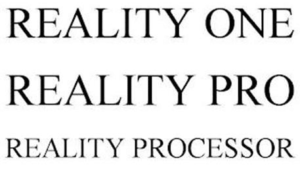
Image via
A first-of-its-kind Phase 3 clinical trial has found that MDMA-assisted therapy provided meaningful relief from PTSD symptoms in nearly 90 percent of study participants.
This promising new study is helmed by Rick Doblin, Ph.D. and the Multidisciplinary Association for Psychedelic Studies (MAPS), who have been conducting clinical research on using MDMA (aka ecstasy or Molly) to treat PTSD and other serious mental health issues for years. Based on the strength of MAPS’ prior research, the US Food and Drug Administration (FDA) has granted MDMA “Breakthrough Therapy” status, a fast-track approval process that could lead to full legalization of this therapy as soon as next year.
After MAPS’ Phase 1 and 2 trials demonstrated that MDMA can safely and effectively treat PTSD symptoms, the group launched a Phase 3 study to replicate and expand upon their prior research. For this study, researchers recruited 90 patients suffering from severe, chronic PTSD. The subjects were randomly divided into two groups, each of which received three individual sessions of talk therapy. Subjects in the experimental group took a dose of MDMA before each session, while subjects in the control group took a placebo.
Most research into psychedelic-assisted therapy for PTSD has focused on military veterans, but the current trial also enrolled first responders and victims of mass shootings, domestic violence, sexual assault, and childhood trauma. The subjects had been experiencing PTSD symptoms for an average of 14 years, and 84 percent had a history of developmental trauma.
The study, which will soon be published in the Nature Medicine journal, reports that 88 percent of subjects who took MDMA experienced a clinically meaningful reduction in their symptoms. And at the end of the trial, 67 percent of the subjects in the experimental group no longer qualified for a diagnosis of PTSD, compared to only 32 percent of the control group.
“The experience of having been traumatized profoundly alters perceptions; self-experience; and capacity to plan, imagine and anticipate,” said Bessel van der Kolk, MD, principal investigator at the study’s Boston site. “For 88% of people who receive this treatment, we can expect to see a treatment response. This can lead to fundamental shifts in our subjects’ perspective on self-capacity, affect regulation, and attitude towards those around them.”
“The therapists and expert research team who have brought us here are at the vanguard of what may be a revolution in mental health care,” said Michael Mithoefer, MD, who trained the 70 therapists who provided the treatment in this study. “The success of this pivotal study is a major step toward regulatory approval, and we hope these results will attract many more researchers and clinicians to join the effort to further explore and deliver MDMA-assisted therapy so we can together address our national – and global – mental health crisis.”
Doblin and his fellow researchers initially began exploring the therapeutic potential of MDMA back in the early 1980s, but these studies ground to a halt when the DEA banned ecstasy in 1985. MDMA is currently classified as a Schedule I drug with no medical value, but thanks to studies like this one, that classification is likely to change.
“This is a wonderful, fruitful time for discovery, because people are suddenly willing to consider these substances as therapeutics again, which hasn’t happened in 50 years,” said Jennifer Mitchell, PhD, lead author of the study, to Rolling Stone.
MAPS is now enrolling participants for a further Phase 3 study that will allow another 50 subjects to access this promising new therapy. If all goes well, the FDA could legalize MDMA-assisted therapy next year, which would make it legally available starting in 2023.











